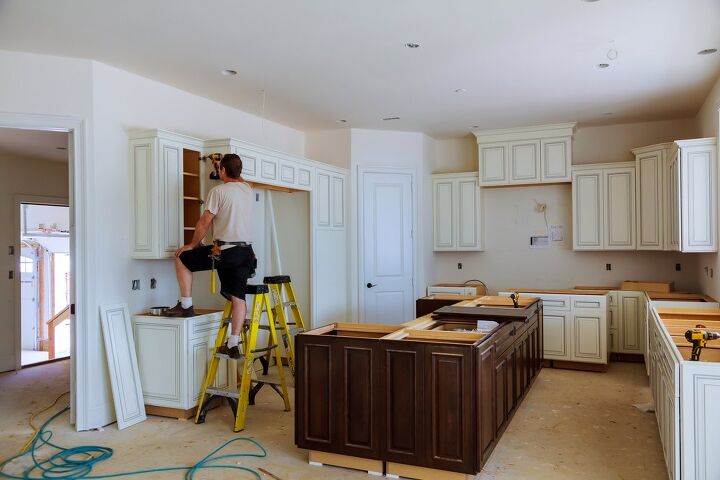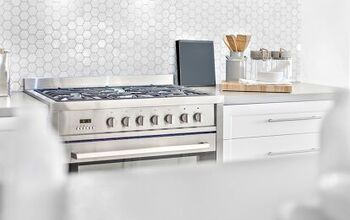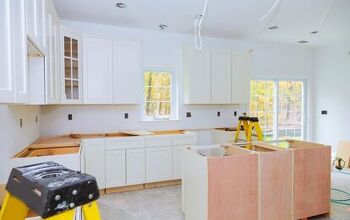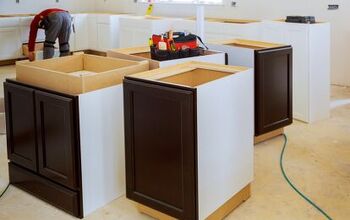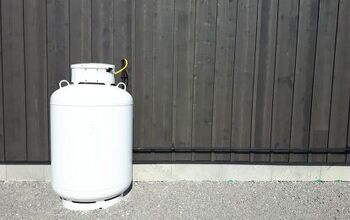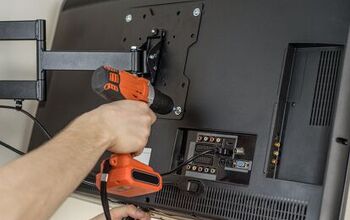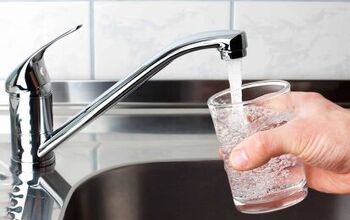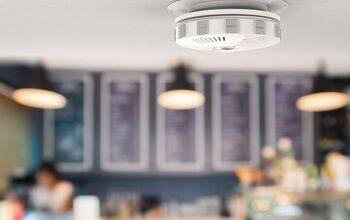How Long Does A Kitchen Remodel Take? (Find Out Now!)

When it comes to home remodeling projects, the kitchen ranks in the top three along with bathrooms and landscaping. Whether you want to expand your culinary skills or increase the value of your home, kitchen remodeling often feels bittersweet. Homeowners love the idea of a new kitchen, but the timeline for the project can be overwhelming. So, just how long does a kitchen remodel take?
On average, a kitchen remodel takes 6 to 8 weeks. A complete renovation of your kitchen can take 10 to 12 weeks. If you want a large kitchen equipped with professional appliances and finishes, the job can last 3 to 5 months. Limit the timeline for the project by having a clear vision, planning ahead, and selecting all the materials.
Kitchen remodels range in complexity, and this affects the timeline. Let’s look at three types of kitchen remodels and what affects the timeline of the project.
Do You Need an Addition or Remodel Contractor?
Get free, zero-commitment quotes from pro contractors near you.

Renovation vs. Remodel
Renovation and remodel are often used to describe any type of updates or changes to a room. A kitchen renovation, though, is quite different from a kitchen remodel. With a renovation, you make relatively minor changes to finishes and fixtures to freshen up a space. A remodel, on the other hand, involves completely transforming a space. Some kitchen renovations can be done over a weekend or just a couple of weeks. Kitchen remodels take 6 weeks to 5 months or longer.
What is Involved in a Kitchen Remodel?
The extent of the redesign for your kitchen determines how long the project takes. The timeline is based upon some or all of the following:
- Relocating or replacing electrical and plumbing
- Replacing or adding countertops and cabinets
- Installing new flooring, fixtures, lighting, and appliances
- Adding kitchen cabinets and countertops
- Rearranging workspaces
- Painting, backsplashes, and other wall treatments
Minor Kitchen Remodel
A minor kitchen remodel that takes 6 to 8 weeks involves leaving some parts of your kitchen in place while updating others. Within that time, you can refinish cabinets, install new flooring, paint, put in new backsplashes, and install new appliances. On average, a minor kitchen remodel costs between $5,000 and $25,000.
Mid-Range Kitchen Remodel
A mid-range kitchen remodel takes about 10 to 12 weeks at a cost of $25,000 to $50,000. This level of kitchen remodel gives you new cabinets, appliances, countertops, flooring, backsplashes, fixtures, energy-efficient appliances, paint, and wall treatments. A mid-range kitchen remodel doesn’t change the layout of the kitchen.
Major Kitchen Remodel
A major kitchen involves completely gutting the space and starting fresh. You get a new layout, cabinets, professional appliances, fixtures, flooring, wall treatments, backsplashes, countertops, plumbing, lighting, and electrical. Major kitchen remodeling may also involve installing new gas lines for your range. The process takes about 3 to 5 months, depending on the size of your kitchen and starts at $50,000.
How to Manage a Kitchen Remodel Timeline
Kitchen remodeling is not one of those projects that you want to leave up to chance. The costs add up very quickly if certain milestones are not met. Here are some tips to streamline the process and make sure that your kitchen is completed within the timeline.
- Work with an architect and designer early on
- Use a contractor who specializes in kitchen remodels
- Take plenty of time with the planning phase – explore your options for finishes and appliances
- Feel confident in your choices
- Order raw materials well ahead of the start date
- Check in with contractors about specific milestones, including plans to remedy any missed milestones
- Stay organized and set up a temporary kitchen
Kitchen Remodel Checklist
Here’s a kitchen remodel checklist to keep with you during the project.
- Keep a list of expectations and priorities
- Have a budget that includes a breakdown for each part of the remodel
- Choose a style and color palette
- Get the raw materials, permits, and appliances before the project starts
- Plan the logistics of the project
- Identify possible challenges and make a plan ahead of time
- Make a timeline with milestones
What to Do If There are Delays in Your Kitchen Remodel
At times, delays in kitchen remodels and other construction projects are inevitable. The first step to take when milestones are missed is to be more involved. If you see that your remodeling is off schedule by one or two days, speak with the contractor. Find out the reason why the schedule is not being met, and ask about solutions. The contractor should have a plan to get the work back on track.
If the remodel is off schedule by several days or more, you may need to extend the timeline. Make it clear with the contractor, though, that you expect issues to be address quickly and efficiently.
How to Set Up a Temporary Kitchen
One of the most frustrating parts of any type of kitchen remodel is that a big part of your life is now off limits. Setting up a temporary kitchen keeps your routine as normal as possible. Here are some ideas for setting up a functional and practical space
- Go through everything in your kitchen – store what isn’t absolutely necessary
- Plan how to prepare meals – grills, electric skillets, and slow cookers are great options
- Find a work space that has access to electricity, hot and cold water, and refrigeration
- Make a plan for storing ingredients and leftovers
- Set up an area for washing dishes
- Schedule at least one night per week for having meals delivered or going out to eat
Is Kitchen Remodeling Important?
As you consider the timelines for each type of kitchen remodeling project, keep the benefits in mind. This helps to alleviate any anxiety about how long the projects takes.
On average, a kitchen remodel increases a home’s value by more than 95% of the original investment for the job. In fact, you will recoup almost the entire cost when you sell your home. The key is to keep the budget in line with the current value of your home.
Even if you plan to keep your home, you and your family reap many benefits of a kitchen remodel. You get to showcase a love of cooking and baking every day. Gathering with friends and family feels more rewarding when you have the space in your kitchen to create meals. Perhaps you can even start your own catering business.
Related Questions
How do you reface kitchen cabinets?
Reface kitchen cabinets with self-adhesive veneers and plywood. You can also change out the hardware.
How do architects help with kitchen remodels?
An architect checks the plans for your kitchen remodel to ensure that the design is structurally sound. This is important when you are removing and building walls.
What is the best paint for kitchen cabinets?
Use a gloss or semi-gloss latex paint. Gloss gives the cabinets a nice shine, but shows fingerprints. Semi-gloss has a slight sheen and hides fingerprints. Both are easy to clean.
Do You Need an Addition or Remodel Contractor?
Get free, zero-commitment quotes from pro contractors near you.

Summary
Depending on the extent of your kitchen remodeling, the project takes several weeks or months. Minor kitchen remodeling takes 6 to 8 weeks. Mid-range kitchen remodels take 10 to 12 weeks, and a major kitchen remodel takes 3 months or longer.
Stay within your timelines by deciding the style, colors, and finishes of your new kitchen before reaching out to contractors. Work with an architect and designer. Order raw materials well ahead of the start date to make sure that there are no delays or mismatches in the finishes.
Using a kitchen remodel checklist keeps you organized. Check in with the contractors on a regular basis. For minor kitchen remodels, this may be every 5 to 7 days. For larger kitchen remodels, check in every 3 to 5 days. The designer and architect should stay involved, as well, to head off any major issues during the project.
Set up a temporary kitchen to maintain a normal routine to the extent possible. Consider how you will store and prepare food, wash dishes, and what types of meals you can prepare. Use grills, electric skillets, and slow cookers as much as possible.
Above all, focus on how much you will love your new kitchen. Stay calm and be flexible. Enjoy the process of seeing the space slowly transformed into your dream kitchen.

Jennifer L. Eggerton loves being hands-on, whether it's with a home DIY project, making repairs, re-decorating a room, or keeping life organized. She enjoys helping people by sharing her knowledge, insights, and experiences, as well as her lessons learned. In addition to her work as a writer, Jennifer is a Jeep® overlander, self-published author, and nature photographer who loves being outdoors.
More by Jennifer Eggerton



